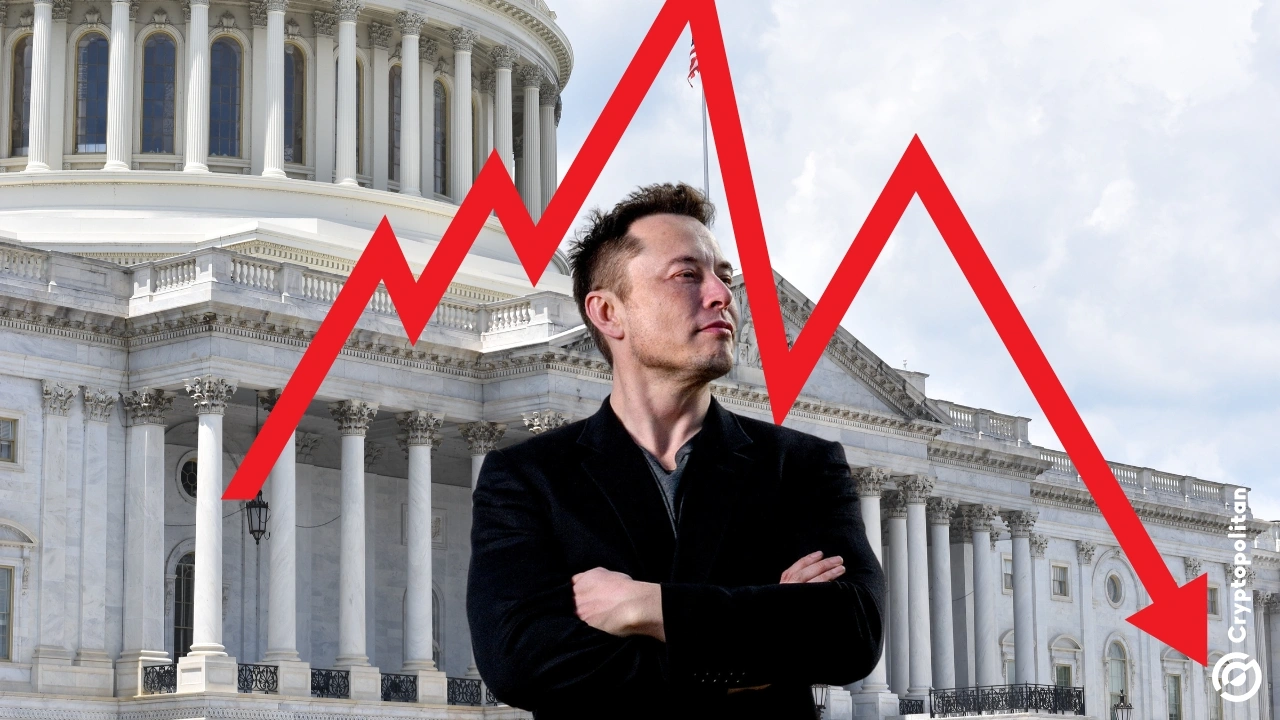Elon Musk’s newest venture, co-piloted with Vivek Ramaswamy, is shaking the financial world to its core. Dubbed the Department of Government Efficiency (D.O.G.E), this initiative, launched under President-elect Donald Trump, is designed to slash federal spending by targeting $500 billion in what they call unauthorized or misused expenditures.
But while Elon touts cost-cutting and deregulation as his ultimate goals, the potential fallout from D.O.G.E has Wall Street sweating.
Federal contractors, pharmaceutical giants, and even defense behemoths like Boeing and Lockheed Martin are bracing for a storm. TD Cowen analysts are already raising red flags. Roman Schweizer, in a Friday note to clients, called D.O.G.E “a major risk factor” for companies tied to government contracts.
“Cuts are possible, and there will be uncertainty for several months,” he said. For a market already jittery over sky-high valuations, D.O.G.E might just be the wrecking ball nobody asked for.
D.O.G.E targets $500 billion in spending
In their Wall Street Journal op-ed, the duo explained their approach: slashing regulatory bloat, trimming administrative costs, and saving taxpayers billions. They say this will rein in federal waste and, in Elon’s words, “put the government on a diet.”
Part of the plan includes gutting discretionary spending, cutting funding to organizations like the Corporation for Public Broadcasting, and restructuring federal workforce policies. For example, Elon wants to reduce headcounts by encouraging voluntary resignations and mandating in-person work for federal employees. It’s Elon’s classic playbook: cut costs, cut deeper, and then cut some more.
But here’s the thing, analysts are skeptical about just how much D.O.G.E can actually deliver. TD Cowen estimates the initiative might save $50 billion to $100 billion annually. That’s a lot of money, sure, but it’s peanuts compared to the federal deficit, which is projected to hit $1.7 trillion in 2024. Plus, Congress would have to approve any major cuts, meaning D.O.G.E’s hands aren’t just tied — they’re practically in handcuffs.
Contractors brace for impact
If D.O.G.E gets its way, some of the biggest names in the business world could be staring down massive losses. Federal contractors—companies that live and die by government budgets—are particularly vulnerable.
According to TD Cowen, defense giants like Lockheed Martin, Northrop Grumman, General Dynamics, Boeing, and RTX are among the top contractors with the most to lose. The Department of Defense alone has a budget of $877 billion, and any cuts there could hit these companies where it hurts most: their bottom line.
It’s not just the defense sector on the chopping block. Leidos Holdings, which handles contracts for Homeland Security, Justice, and Transportation, could also feel the squeeze.
Pharmaceutical companies like Merck, Pfizer, and Humana aren’t safe either, as they rake in billions through Health and Human Services contracts.
The fear is real—stocks for some of these companies have already taken a beating, partly because of high valuations but also because investors are spooked by D.O.G.E’s looming threat.
TD Cowen analysts also point out that while the potential damage is significant, it might not be as catastrophic as it sounds. Congress still holds the reins when it comes to regulation.
Of course, no Elon story would be complete without crypto madness. Since Trump’s announcement of D.O.G.E, Dogecoin (the meme coin Elon has famously championed) has skyrocketed more than 150%. Investors are betting big on Elon’s involvement, seeing it as a bullish signal for DOGE.
Retail traders are piling in, fueling a speculative frenzy that feels more like a casino than a market. The crypto market as a whole tends to react to Elon’s every move. And it has been in a bull run since Trump won.
Land a High-Paying Web3 Job in 90 Days: The Ultimate Roadmap





